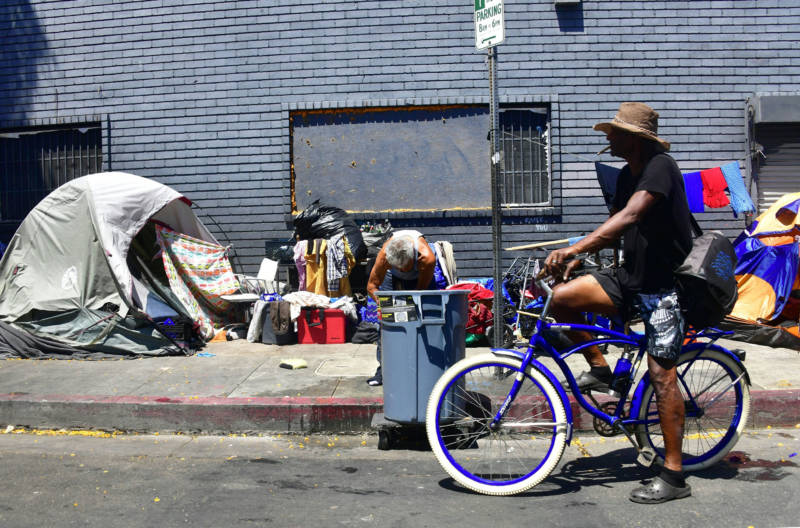A group of Democratic state lawmakers is pushing to consolidate the funding available for California cities to take on homelessness.
They say California's current system of helping the homeless is a bureaucratic maze, and want $450 million in the state budget to create a one-stop shop for local governments to access funds for everything from rental assistance, to health services, to shelters.
"It's a huge investment and it's a huge system change," said Assemblywoman Sharon Quirk-Silva, D-Fullerton.
Last year, California funded more than a dozen programs to address homelessness across six different departments — a web of deadlines and requirements for local governments looking for a slice of funding.
"Smaller cities that don't have lobbyists and grant writers, they really often miss this opportunity, just because of a lack of a workforce," Quirk-Silva said.
The Flexible Housing Program proposed in Assembly Bill 816 would pool together money at the state level, and allow local governments to apply for it with something akin to the college "common app." Funding would be prioritized for initiatives that work across city lines, and the money could be used for a variety of services that help individuals and families off the streets.
